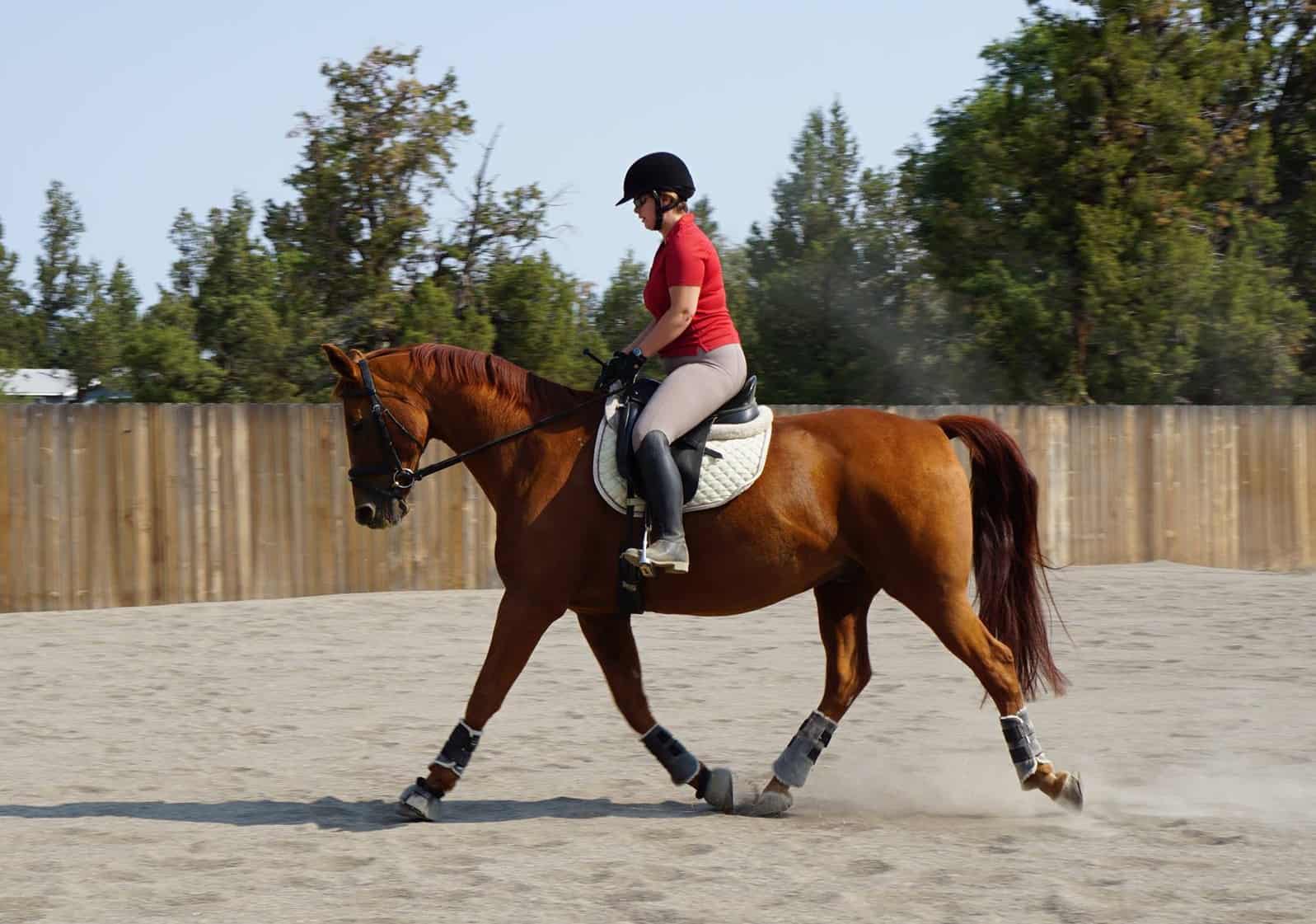5 Ways to Protect Horses (and Humans) From Rabies

Rabies is a fatal neurologic disease with no cure. It affects mammals, including horses and humans, and is caused by a virus that’s typically spread via the bite of an infected animal. Infected animals, in turn, become unpredictable, dangerous, and more likely to bite.
Scary, right?
Fortunately, rabies is preventable with vaccination and well-controlled in most areas of the United States, says Ragan Adams, DVM, a coordinator with the Colorado State University Veterinary Extension. She offers the following tips to protect you and your horse.
1. Vaccinate Your Horse
Because rabies threatens both horses and the humans who handle them, the American Association of Equine Practitioners recommends rabies as one of four core vaccines every U.S. horse should receive.
“Although exposure is low, the consequence of contracting the disease is high,” explains Adams. “Because there are no known effective antiviral treatments, once a person or animal exhibits clinical signs of rabies infection, death follows in days or weeks.”
Vaccination helps mitigate the risk. “Rabies infections are rare in animals and people who have been protected by vaccination,” she says.
2. Vaccinate Dogs and Cats That Have Access to Your Horses
Due to their inquisitive natures, as well as their tendencies to roam, dogs and cats are at risk for encountering rabid wildlife, such as raccoons, skunks, foxes, and bats. Horses and livestock living outside are also more likely to come across rabid wildlife than most humans.
“In turn, cats, dogs, livestock, and horses then make contact with humans,” says Adams. “The best method to prevent human exposure is to ensure that horses, livestock, and pets are protected against rabies with current vaccinations.”
3. Recognize the Clinical Signs of Equine Rabies
“Suspect rabies in all horses that show a sudden onset of rapidly progressing neurological signs,” says Adams. However, she notes, horses with rabies might also show a wide range of clinical signs that resemble other more common diseases, such as equine herpesvirus, Eastern and Western equine encephalomyelitis, and West Nile virus. Watch for clinical signs including:
- Depression with loss of appetite;
- Abdominal pain or colic;
- Straining to urinate or defecate;
- Low-grade fever;
- Choke;
- Swallowing problems;
- Drooling;
- Lameness and/or incoordination;
- Odd behavioral changes, nervousness, or irritability; and
- Convulsions or seizures.
Similar symptoms and clinical signs apply to humans, livestock, and mammalian pets. All can be infectious before they show clinical signs, and in the early stages of the diseases the signs can mimic other more common diseases, says Adams.
“Many people may be exposed to the infected animal unknowingly,” she says. “Rabies can only be diagnosed with a laboratory test performed after death.”
4. Recognize Rabid Behavior in Wildlife, and Know How to React

According to the Centers for Disease Control, basically, a rabid animal will act strangely. Be especially suspicious of a normally nocturnal animal out during the day. Once you identify an animal acting abnormal, take steps to protect people and animals.
“First, stay away from the animal and keep other animals and humans away,” Adams advises. “Then call animal control or your local public health office, which will send a professional to capture the animal, euthanize it, and send the animal for testing.”
Abnormal behavior in a nocturnal animal is not definitive for rabies, she says, and veterinarians can only make a diagnosis with a post-mortem test.
5. Eliminate Wildlife Habitat in Your Barn
Keeping wildlife away from your horses in the first place will help protect them from disease. Adams recommends securing grain, eliminating water sources (other than your horses’ water, of course), and blocking access to shelter. Critters “often like to sleep where hay is stored,” Adams says.
Also, raccoons especially enjoy dog and cat food, so don’t keep full pet bowls or feeding stations in the barn.
Take-Home Message
While rabies is fatal, the disease is also preventable. Protect humans from exposure by vaccinating horses, livestock, and pets.

Written by:
Michelle Anderson
Related Articles
Stay on top of the most recent Horse Health news with















